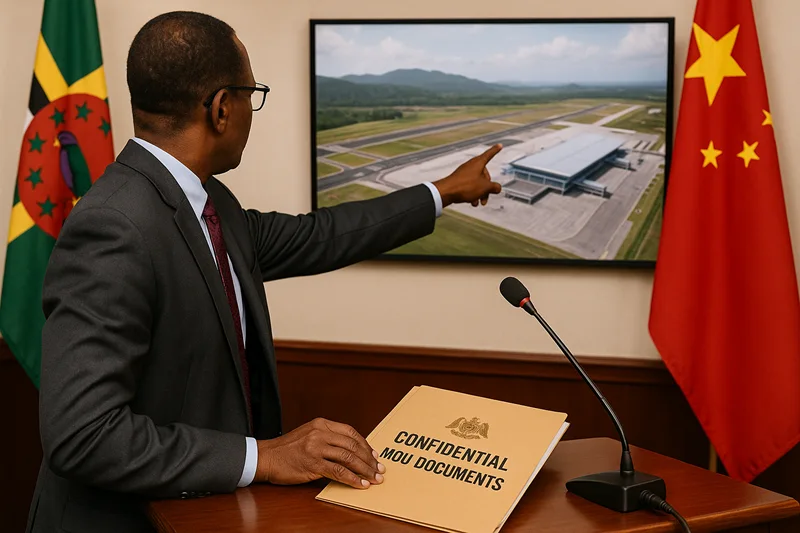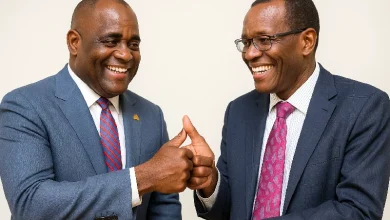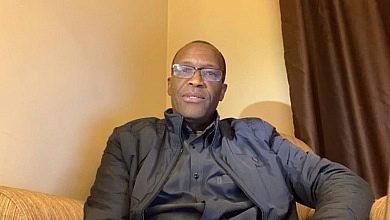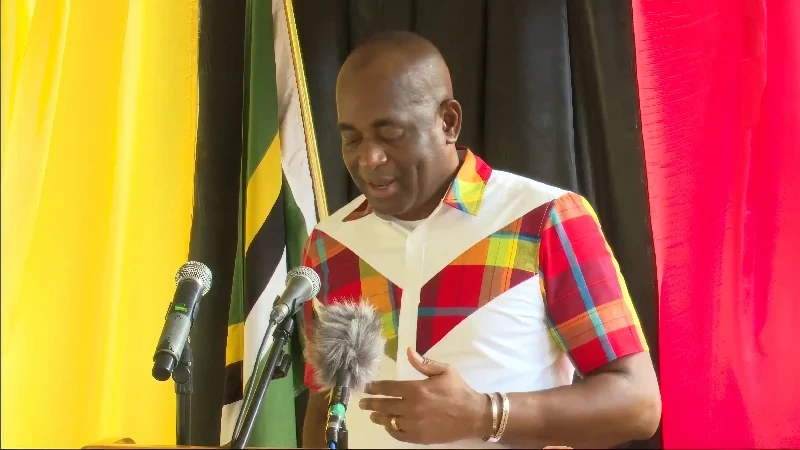Transparency in Foreign Agreements: Fontaine’s MOU Demand Reflects Public Concern

- Fontaine seeks China MOU transparency
- Public demands airport deal disclosure
- China-Dominica BRI terms remain unclear
- Fears rise over debt and sovereignty
- Opposition urges full foreign contract release
- Civil society joins transparency push
- Airport funding tied to CBI program
In recent years, Dominica has embarked on significant infrastructure projects, notably constructing its first international airport. While promising economic growth, these developments have also sparked debates about transparency and national sovereignty. Dr. Thomson Fontaine, leader of the United Workers Party (UWP), has been vocal in demanding the public release of Memoranda of Understanding (MOUs) signed between the Government of Dominica and foreign partners, particularly China. His concerns resonate with a broader public sentiment that seeks clarity on the terms and implications of such agreements.
The China-Dominica Partnership: An Overview
Dominica established diplomatic relations with China in 2004, increasing cooperation in various sectors, including infrastructure, education, and healthcare. Notably, the construction of the Dominica-China Friendship Hospital and the ongoing development of the international airport project are products of this partnership. In 2018, both countries signed a Memorandum of Understanding under China’s Belt and Road Initiative (BRI), aiming to enhance infrastructure and trade connectivity. While these projects offer potential benefits, the lack of publicly available agreement details has raised questions about their terms and long-term implications.
Dr. Fontaine’s call for transparency centres on the belief that citizens have the right to know the specifics of agreements that impact national assets and future obligations. The absence of publicly disclosed MOUs fuels speculation about potential hidden clauses, debt obligations, and the extent of foreign involvement in domestic affairs. This concern is not isolated. In other Caribbean nations, similar apprehensions have arisen regarding foreign-funded projects. For instance, in Suriname, discussions about debt restructuring with China have been marked by a lack of clarity, leading to public unease.
Economic Implications and Sovereignty
While foreign investments can catalyze development, they may also lead to economic dependencies. Critics argue that countries risk compromising their sovereignty without transparent agreements, especially if they become heavily indebted or reliant on a single foreign partner. In Dominica’s case, using the Citizenship by Investment program to fund major projects such as the airport introduces added financial and political challenges. Intertwining national assets, foreign funding, and citizenship rights necessitates a clear understanding of all involved parties’ roles and responsibilities.
The opposition’s demand for transparency is a fundamental aspect of democratic governance. By advocating for the disclosure of MOUs, Dr. Fontaine and the UWP aim to ensure that national interests are safeguarded and that the public remains informed. Civil society organisations and media outlets also play a crucial role in this discourse. Their investigative efforts and reporting can shed light on opaque dealings, fostering a culture of accountability and informed public debate.
Government’s Stance and the Need for Dialogue
The Dominican government has emphasised the benefits of its partnerships, highlighting infrastructure development and economic growth. However, the reluctance to disclose MOUs has been a point of contention. Engaging in open dialogues with opposition parties, civil society, and the public can bridge trust gaps and ensure that development projects align with national interests and public expectations.
Transparency in international agreements is a political demand and a cornerstone of good governance. As Dominica continues its development journey, ensuring that all stakeholders are informed and involved in decision-making will be vital. Releasing the MOUs with foreign partners can significantly reinforce public trust, safeguard sovereignty, and promote sustainable development.
This article is copyright © 2025 DOM767








